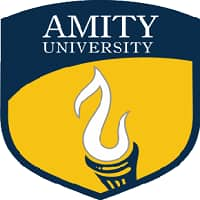Amity University Noida B.Tech Admissions 2025
ApplyAmong Top 30 National Universities for Engineering (NIRF 2024) | 30+ Specializations | AI Powered Learning & State-of-the-Art Facilities
77 Marks In JEE Mains Percentile: Candidates who get 77 Marks in JEE Mains are expected to get a percentile between 90-92. The JEE Main percentile is derived after following the NTA normalisation process. The total marks of JEE Mains is 300. If a candidate scores 150 marks doesn’t mean as 50 percentile but it scores 98 to 95 percentile. The final JEE mains marks vs percentile will be updated after the final result announcement.
JEE Main 2025: Session 2 Result Out; Direct Link
JEE Main 2025: College Predictor | Marks vs Percentile vs Rank
New: JEE Seat Matrix- IITs, NITs, IIITs and GFTI | NITs Cutoff
Latest: Meet B.Tech expert in your city to shortlist colleges

Also Read- JEE Main result
Candidates who will get 77 marks in JEE Mains are likely to receive a percentile between 90-92 percentile. JEE Main rank a student can get with the 77 marks is expected to be 92,000 to 1,69,542. Expected percentile and Ranks for 77 marks in JEE mains exam is given on this page. For complete details regarding 77 marks in JEE Mains percentile, read the article below.
Marks out of 300 | Rank |
288- 294 | 20-11 |
280-284 | 44-22 |
270- 279 | 107-63 |
252- 268 | 522-106 |
231-249 | 1385-546 |
215-230 | 2798-1421 |
202-214 | 4666-2862 |
190-200 | 6664- 4830 |
175-189 | 10746-7151 |
161-174 | 16163-11018 |
149-159 | 21145-16495 |
132-148 | 32826-22238 |
120-131 | 43174-33636 |
110-119 | 54293-44115 |
102-109 | 65758-55269 |
95-101 | 76260-66999 |
89-94 | 87219-78111 |
79-88 | 109329-90144 |
64-87 | 169542-92303 |
44-62 | 326517-173239 |
1-42 | 1025009-334080 |
Year | Marks | Approx. Percentile | Approx. Rank Range |
2024 | 77 | 91 – 93 | 85,000 – 1,05,000 |
2023 | 77 | 90 – 92 | 90,000 – 1,10,000 |
2022 | 77 | 89 – 91 | 95,000 – 1,15,000 |
2021 | 77 | 88 – 90 | 1,00,000 – 1,20,000 |
JEE Mains Percentile score is not a direct score. It is calculated by using normalisation formulae. JEE mains percentile is based on the candidates obtained score, number of candidates scored marks and number of candidates appeared in that examination session. JEE mains percentile score differs with every session. Candidates who got 77 marks in the first session may get different percentile marks to the candidate who got the same 77 marks in second session. Below in the table is it given on how JEE mains percentile is calculated.
Raw Score | Candidates ≤ Your Score | Total Candidates in Session | Percentile Score |
77 | 91,000 | 1,00,000 | (91,000 / 1,00,000) × 100 = 91.00 |
JEE mains cutoff marks can be checked on National Testing Agencies official website jeemain.nta.nic.in.
The JEE mains percentile is calculated as the number of candidates who scored less than or equal to the scored marks by candidates divided by total candidates in the session multiplied by 100.
Congrats on scoring 97.4 percentile in JEE Mains! That's a really good score.
Now let's break it down:
At 97.4 percentile , your general category (open category) CRL (Common Rank List) would likely be around 25,000 to 30,000 .
If you belong to EWS, OBC, SC, or ST category, your category rank will be much better, and your chances will increase further.
For CSE , ECE , IT at top NITs, it might be tough with this rank because those branches close around 10k–15k CRL.
But for branches like Aerospace Engineering , Mechanical Engineering , Production , Civil Engineering , you have good chances .
Only a few NITs offer Aerospace, like:
NIT Surathkal (Karnataka) — Aerospace closes around 20,000 CRL (a bit tough, but possible if home state quota applies).
NIT Trichy (Tamil Nadu) — Has Production Engineering but not direct Aerospace.
IIST (Indian Institute of Space Science and Technology) is best for Aerospace, but it takes through JEE Advanced, not Mains.
Other options : Some IIITs, private colleges (like UPES Dehradun, etc.) also offer Aerospace courses through JEE Mains score.
So in short:
Aerospace seat in NIT — Slightly difficult but possible if you have Home State Quota at a NIT that offers it.
Otherwise , you can easily get into good NITs with branches like Mechanical, Civil, Production , and later shift to Aerospace specialization during M.Tech or through electives/projects.
Got it — you scored 68 percentile in JEE Mains. Let’s first understand:
At 68 percentile , your CRL (Common Rank List) rank would be around 3,50,000 to 4,00,000 .
With this rank, getting into the top NITs, IIITs, or GFTIs is very difficult unless you belong to a reserved category (SC/ST).
Now, based on this score, here are your best options :
Many state colleges give admission based on JEE Mains score with lower cutoff. You can try:
AKTU (Uttar Pradesh) through JEE score — like IET Lucknow (low chance) or other government colleges.
Colleges in Haryana, Rajasthan, Madhya Pradesh, Punjab — they accept lower JEE scores too.
These accept JEE Mains score and your rank is fine for them:
Shiv Nadar University (Good faculty and placements)
UPES Dehradun (especially for Aerospace, CS, Energy branches)
NIIT University Neemrana
Amity University Noida (CS, IT good)
Lovely Professional University (LPU)
VIT (Vellore Institute of Technology) — Not through JEE, but you can apply separately.
SRM University — through their SRMJEEE exam (or direct admission).
Some colleges take students through management quota or direct admission even if JEE score is low.
If you want Aerospace branch specifically:
UPES Dehradun and Amity Noida have decent Aerospace programs.
Presidency University Bangalore also has B.Tech Aerospace.
Thanks for giving all details clearly. Let’s go step-by-step:
You have:
JEE Mains Percentile : 62.80
Overall Rank : 565607
SC Category Rank : 42187
Board % : 76.6% (UK Board)
Domicile : Uttarakhand
Category : SC
Because you are from
SC category
and have
Uttarakhand domicile
, your chances
improve a lot
in
state-level NITs or government colleges
.
NIT Uttarakhand
and other state colleges reserve a good number of seats for SC category.
In top NITs (like NIT Trichy, Warangal, Surathkal) , it will not be possible at this rank.
In NIT Uttarakhand , lower branches (Mechanical, Civil, etc.) may be possible but CSE or ECE is difficult even in SC category.
In State Government Colleges of Uttarakhand (through UKSEE counseling or direct admission), you can definitely get CSE/ECE .
Private colleges in Uttarakhand (like Graphic Era University, UPES Dehradun, DIT University) will easily give you CSE or ECE with scholarship based on SC and board marks.
NITs : Very tough for CSE/ECE at this rank, even with SC category.
State Govt. Colleges (like GBPUAT Pantnagar affiliated colleges) : Good chance for CSE/ECE.
Private Universities (Graphic Era, DIT, UPES): Easily possible for CSE or ECE.
Apply for State counseling (UKSEE) — higher chance to get CSE or ECE in Govt colleges.
Also apply to private universities (like Graphic Era, DIT) — they are good in Uttarakhand and offer CSE/ECE without needing high JEE ranks.
Given your JEE Mains GMR rank of 415,788 and SC rank of 27,800, it's unlikely you'll get a seat in B.Tech Civil Engineering at Heritage Institute of Technology. Here's why:
- General Category Cutoff: The cutoff rank for Heritage Institute of Technology is typically below 4,000 in JEE, which you're exceeding.
- Scheduled Caste Cutoff: For SC category, the cutoff rank is around 6,740. Your SC rank is 27,800, which is higher than the cutoff.
To increase your chances of getting into Heritage Institute of Technology or other colleges, consider the following options:
- Explore Other Colleges: Look into other colleges that accept JEE Mains scores and have higher cutoffs.
- Check Previous Year Cutoffs: Verify the cutoffs for previous years to get an idea of the competition.
- Use College Predictor Tools: Utilize online tools to predict your chances of getting into specific colleges based on your rank.
Some colleges you might consider exploring:
- RCC Institute of Information Technology
- Academy of Technology
Hello Yuvii
I can understand that gaining 50% marks is not satisfactory , but what i would suggest you First you try to take admission in some private colleges as they conduct their own entrance exams , so try for it and if you want to do family business in future then its okay only you need to complete your bachelors degree so apply for some good private university and try to get admission in those colleges , if you get selected then do hardwork for 2-3 years and who knows , if you will secure a good job in a reputable company so just focus on your skills,and if you don't like my above suggestion then you can also fill the private candidate form and reappear again in exams .
A flight attendant is a professional whose primary duty is to ensure the safety and comfort of passengers during an airline flight. An individual who is pursuing a career as a flight attendant is part of the cabin crew for the plane, a team of personnel who operate a commercial, business, or even military aircraft while travelling domestically or internationally.
An individual pursuing a career as a flight attendant is specially trained for the aircraft in which he or she works since passenger safety is their foremost concern. In this article, we will discuss how to become a flight attendant in India or how to become a flight attendant after graduation.
An aerospace engineer is an individual who develops new ideas and technologies that can be used in defence systems, aviation, and spacecraft. He or she not only designs aircraft, spacecraft, satellites, and missiles but also creates test vehicles to ensure optimum functionality. Aerospace engineering is a branch of engineering that deals with the study, design, and development of aerial vehicles such as aircraft and spacecraft.
Aerospace engineering jobs deal with employees who design or build missiles and aircraft for national defence, or spacecraft. Aerospace engineering or aircraft engineering is often referred to as rocket science. The bottom line is that the person who is pursuing a career in aerospace engineering has to deal with multiple teams at different levels and work across various technologies.
A career in the aviation industry always sounds exciting. But, there is no scope for the slightest error as it may cost the lives of many people. A Flight Engineer role comes with the responsibility of monitoring the aircraft engine and control systems while in flight. Whenever the aircraft is away from the home station, he or she is required to perform pre-flight and post-flight inspections
An aircrew officer or airline commanders fly aircraft to provide transportation to passengers or cargo. The aircrew officer operates the engines of aircraft and controls to navigate and fly the airplane. The ability to learn new technologies every time and to stay up-to-date with the changes in the industry is what the aircrew officer should possess.
This could be possible through membership with professional pilot associations. The aircrew officer is also one of the highest-paid professionals and the job is quite coveted. Keep reading to find out what you need to know about how to become aircrew officer.
You may also read career as Airline Pilot.
An air hostess is a flight attendant also known as a cabin crew or steward. An air hostess undertakes several pre-flight, in-flight, and post-flight duties and is responsible for ensuring the safety and comfort of passengers on both national and international flights. A career as an air hostess might be desirable for you if you are excited about a job in which you can help people and travel to exciting places.
Air hostesses play a crucial role in the flight crew, working closely with pilots and ground personnel to provide a safe and comfortable travel experience, even beyond their hospitality responsibilities. Being flexible, having strong communication skills, and being dedicated to the comfort of passengers are all necessary for their dynamic function, which makes them essential to the entire travel experience.
An Aeronautical Engineer job comes with the responsibility of designing aircraft and thrust systems. He or she is employed in aviation, defence or civil aviation industries. Aeronautical Engineer is generally engaged in the design of aircraft and propulsion systems as well as the analysis of building materials and aircraft's aerodynamic performance. The role of an Aeronautical Engineer may involve assembling parts of aircraft, testing and maintaining them.
A Safety Manager is a professional responsible for employee’s safety at work. He or she plans, implements and oversees the company’s employee safety. A Safety Manager ensures compliance and adherence to Occupational Health and Safety (OHS) guidelines.
Are you searching for an 'airline pilot job description'? An airline pilot or airline commander flies aircraft and helicopters to provide transportation to passengers or cargo. The airline pilot operates the engines of the aircraft and controls them to navigate and fly the airplane. The ability to learn new technologies every time and to stay up-to-date with the changes in the industry is what aviators should possess. The career as airline pilot is also one of the highest-paid professionals and the job is quite coveted.
Welding Engineer Job Description: A Welding Engineer work involves managing welding projects and supervising welding teams. He or she is responsible for reviewing welding procedures, processes and documentation. A career as Welding Engineer involves conducting failure analyses and causes on welding issues.
A career as Transportation Planner requires technical application of science and technology in engineering, particularly the concepts, equipment and technologies involved in the production of products and services. In fields like land use, infrastructure review, ecological standards and street design, he or she considers issues of health, environment and performance. A Transportation Planner assigns resources for implementing and designing programmes. He or she is responsible for assessing needs, preparing plans and forecasts and compliance with regulations.
Individuals who opt for a career as an environmental engineer are construction professionals who utilise the skills and knowledge of biology, soil science, chemistry and the concept of engineering to design and develop projects that serve as solutions to various environmental problems.
A Safety Manager is a professional responsible for employee’s safety at work. He or she plans, implements and oversees the company’s employee safety. A Safety Manager ensures compliance and adherence to Occupational Health and Safety (OHS) guidelines.
A Conservation Architect is a professional responsible for conserving and restoring buildings or monuments having a historic value. He or she applies techniques to document and stabilise the object’s state without any further damage. A Conservation Architect restores the monuments and heritage buildings to bring them back to their original state.
A Structural Engineer designs buildings, bridges, and other related structures. He or she analyzes the structures and makes sure the structures are strong enough to be used by the people. A career as a Structural Engineer requires working in the construction process. It comes under the civil engineering discipline. A Structure Engineer creates structural models with the help of computer-aided design software.
Highway Engineer Job Description: A Highway Engineer is a civil engineer who specialises in planning and building thousands of miles of roads that support connectivity and allow transportation across the country. He or she ensures that traffic management schemes are effectively planned concerning economic sustainability and successful implementation.
Are you searching for a Field Surveyor Job Description? A Field Surveyor is a professional responsible for conducting field surveys for various places or geographical conditions. He or she collects the required data and information as per the instructions given by senior officials.
Individuals who opt for a career as geothermal engineers are the professionals involved in the processing of geothermal energy. The responsibilities of geothermal engineers may vary depending on the workplace location. Those who work in fields design facilities to process and distribute geothermal energy. They oversee the functioning of machinery used in the field.
A geologist attempts to comprehend the historical backdrop of the planet we live on, all the more likely to anticipate the future and clarify current events. He or she analyses the components, deployments, results, physical characteristics, and past of the planet. A geologist examines the landforms and landscapes of the earth in relation to the geology, climatic, and human processes that have shaped them.
A geologist studies earth procedures, for example, seismic tremors, avalanches, floods, and volcanic eruptions to review land and draw up safe structure plans. When he or she researches earth materials, explores metals and minerals, yet in addition search for oil, petroleum gas, water, and strategies to extricate these.
Energy efficiency engineering is a broad field of engineering which deals with energy efficiency, energy services, facility management, plant engineering, and sustainable energy resources. Energy efficiency engineering is one of the most recent engineering disciplines to emerge. The field combines the knowledge and understanding of physics, chemistry, and mathematics, with economic and environmental engineering practices. The main job of individuals who opt for a career as an energy performance engineer is to find the most efficient and sustainable path to operate buildings and manufacturing processes.
Individuals who opt for a career as energy performance engineers apply their understanding and knowledge to increase efficiency and further develop renewable sources of energy. The energy efficiency engineers also examine the use of energy in those procedures and suggest the ways in which systems can be improved.
A career as a Petroleum engineer is concerned with activities related to producing petroleum. These products can be in the form of either crude oil or natural gas. Petroleum engineering also requires the exploration and refinement of petroleum resources. Therefore, a career as a petroleum engineer comes up with oil and gas onshore jobs. There are also desk jobs in the petroleum industry. In layman’s terms, a petroleum engineer is a person who finds the best way to drill and extract oil from oil wells. Individuals who opt for a career as petroleum engineer also tries to find new ways to extract oil in an efficient manner.
A career as Transportation Planner requires technical application of science and technology in engineering, particularly the concepts, equipment and technologies involved in the production of products and services. In fields like land use, infrastructure review, ecological standards and street design, he or she considers issues of health, environment and performance. A Transportation Planner assigns resources for implementing and designing programmes. He or she is responsible for assessing needs, preparing plans and forecasts and compliance with regulations.
A career as a civil engineer is of great importance for the infrastructural growth of the country. It is one of the most popular professions and there is great professional as well as personal growth in this civil engineering career path. There is job satisfaction in this civil engineering career path, but it also comes with a lot of stress, as there are multiple projects that need to be handled and have to be completed on time. Students should pursue physics, chemistry and mathematics in their 10+2 to become civil engineers.
A career as a Transportation Engineer is someone who takes care of people's safety. He or she is responsible for designing, planning and constructing a safe and secure transportation system. The transportation sector has seen a huge transformation and is growing day by day and improving every day.
As a Transport Engineer, he or she needs to solve complex problems such as accidents, costs, traffic flow, and statistics. A Transport Engineer also collaborates for projects with some other companies.
A loco pilot or locomotive pilot is a professional responsible for operating trains. He or she starts, stops, or controls the speed of the train. A locomotive pilot ensures that the train operates according to time schedules and signals. These loco pilots are responsible for carrying people and products to distinct destinations.
A loco pilot has thorough knowledge and understanding of the railway operations, rules, regulations, protocols, and measures to take in times of emergency. Their role is crucial in ensuring passenger and freight trains' smooth and safe operation. Here, in this article, we will discuss everything on how to how to become a loco pilot.

Among Top 30 National Universities for Engineering (NIRF 2024) | 30+ Specializations | AI Powered Learning & State-of-the-Art Facilities

Ranked #1 Among all Private Indian Universities in QS Asia Rankings 2025 | Scholarships worth 210 CR

Last Date to Apply: 30th April'25. Ranked 10th among Emerging Engineering Institutes in India by Times
Ranked #42 among Engineering colleges in India by NIRF | Highest Package 1.3 CR , 100% Placements | Last Date to Apply: 28th April
Dive into everything you need to know about IITs—from eligibility and cutoffs to fees and placements.
1000+ Recruiters | 450+ Patents | 50000+ Alumni network